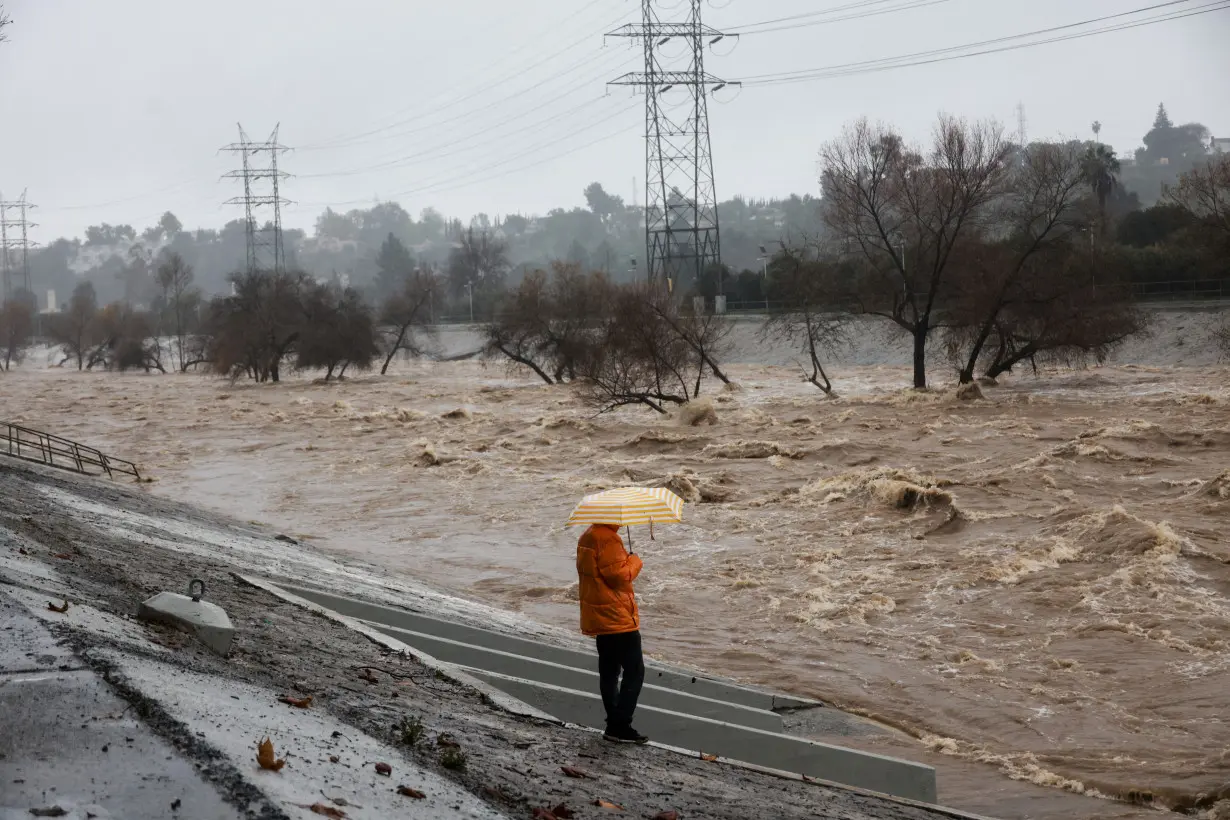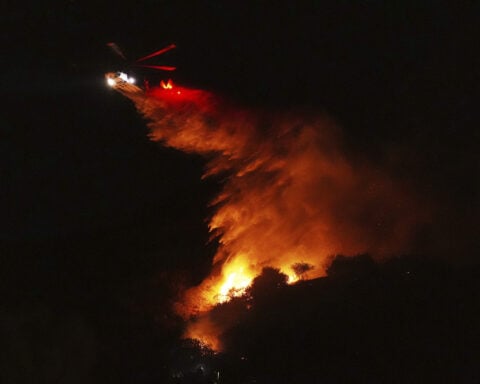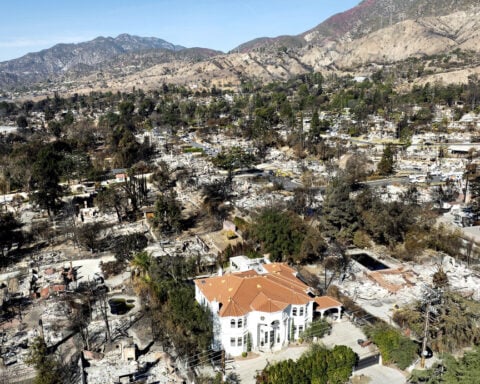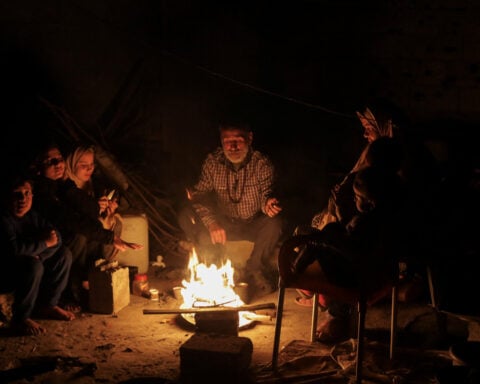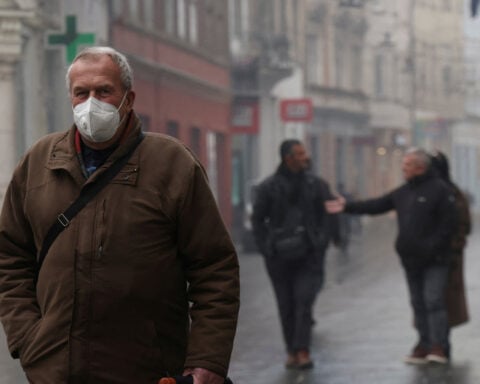(Reuters) - A massive Pineapple Express storm - the second in recent days - stalled over Southern California on Monday, drenching the Los Angeles area with torrential rain, bringing near-hurricane-force wind gusts and raising the threat of flash floods and landslides.
Throughout California, some 40 million people were under flood, winter storm and high wind advisories on Monday morning, the National Weather Service (NWS) said. A Pineapple Express weather system, named for its origin near Hawaii and also called an atmospheric river storm, is vast airborne current of dense moisture carried aloft from the Pacific and dumped on land as heavy precipitation.
California Governor Gavin Newsom on Sunday declared a state of emergency in eight counties with a combined population of more than 20 million people, after a first atmospheric river storm delivered a deluge of rain up and down the coast beginning on Friday.
Parts of southern California including the Los Angeles area could get as much of 8 inches (20 cm) of rain on Monday after being drenched during the weekend, according to forecasts. By Monday, the threat for flash flooding centered on Southern California, as the system slowly pivoted and pushed further into the interior of California, the NWS said in its forecast.
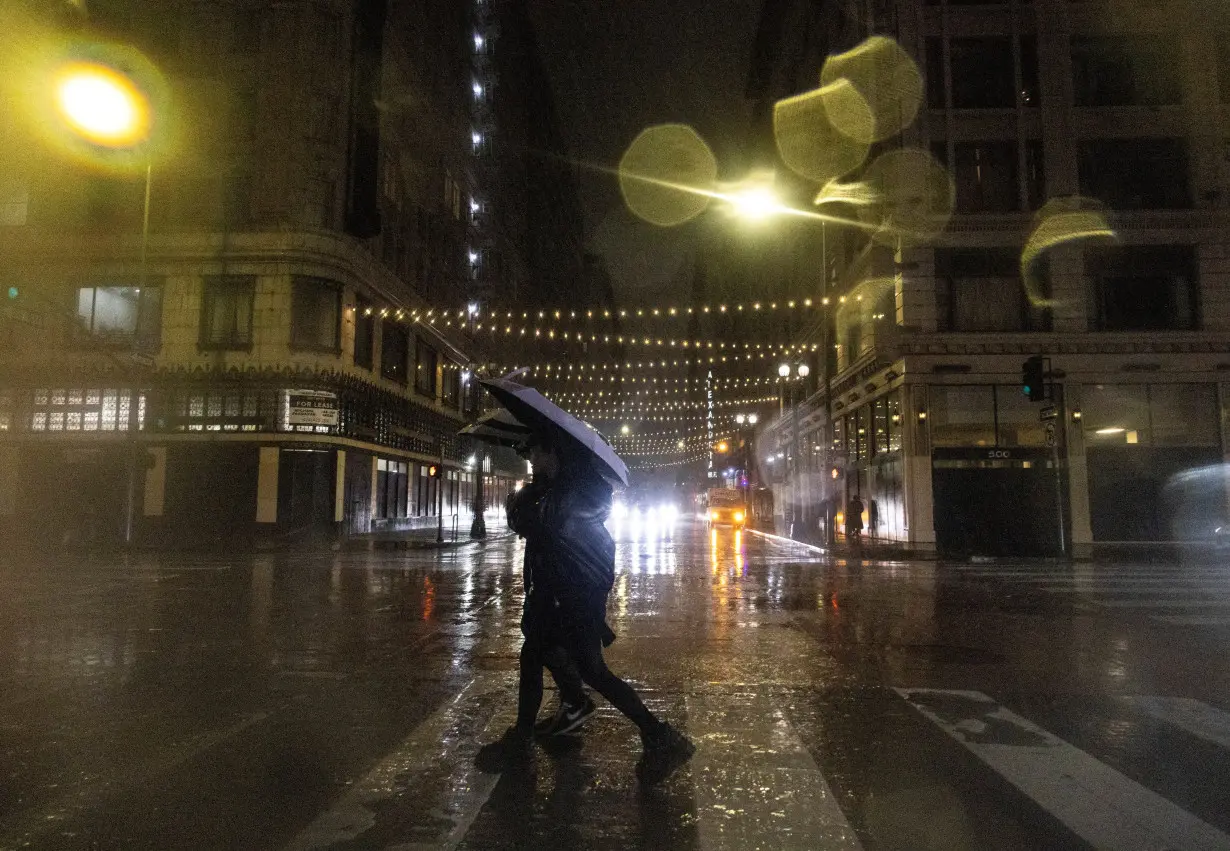
There were no reports of severe damage or casualties. Overnight, at least three homes were damaged by a debris field in Encino, a neighborhood in the San Fernando Valley region of Los Angeles, the fire department said, with no injuries reported.
Still, authorities told residents to be prepared for extremely dangerous conditions, especially in the Hollywood Hills in Los Angeles and in the Santa Monica Mountains.
"Life-threatening landslides and additional flash flooding expected overnight tonight. Avoid travel if at all possible," the NWS in Los Angeles said in a post on social media early on Monday.
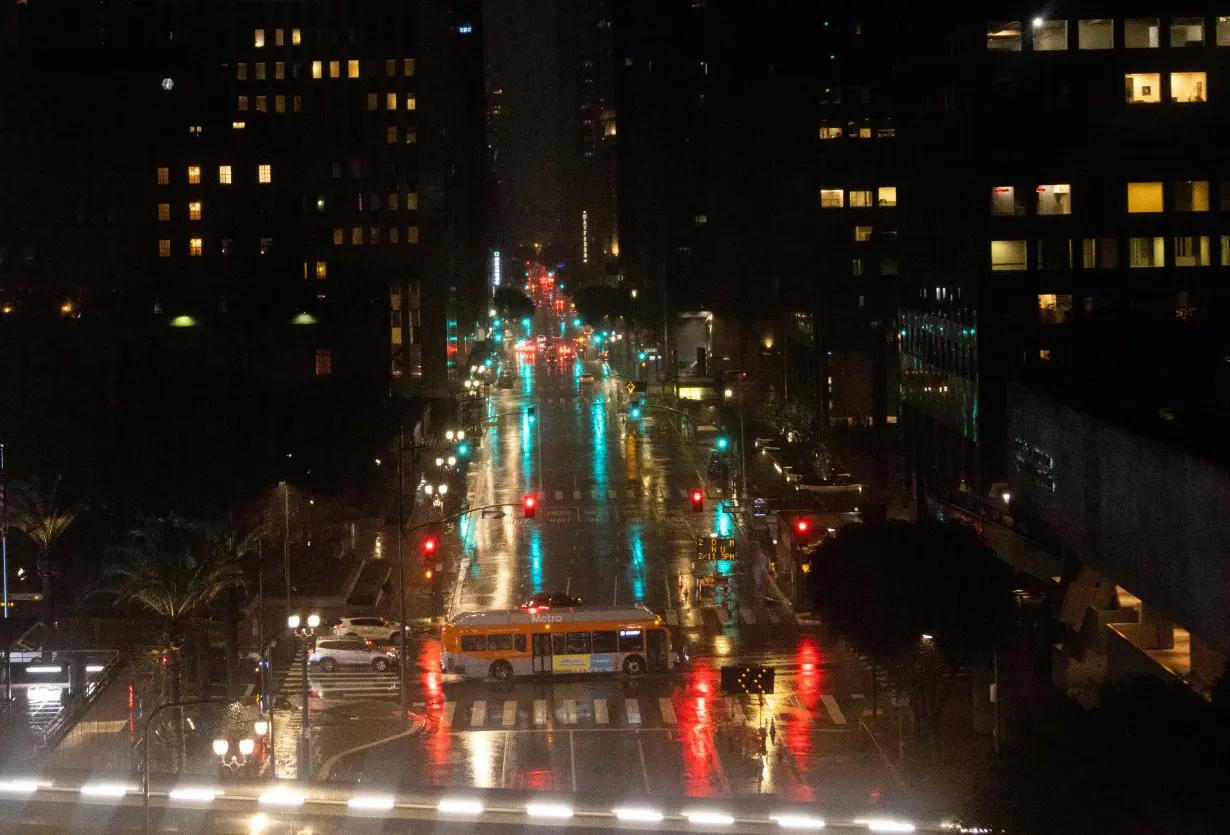
In San Bernardino County, to the east of Los Angeles, the weather service issued a flash flood warning for more than 2 million people early on Monday. The area could get as much as 1.75 inches (4.4 cm) of rain during the morning commute, it said.
The storm was producing wind gusts of 60 miles (96 km) an hour, knocking out power for some 530,000 homes and businesses across the state, according to Poweroutage.us. As many of 900,000 customers were without power over the weekend.
On Sunday, according to a CNN meteorologist, 4 inches (10 cm) of rain fell in downtown Los Angeles, the most in a single day in 20 years.
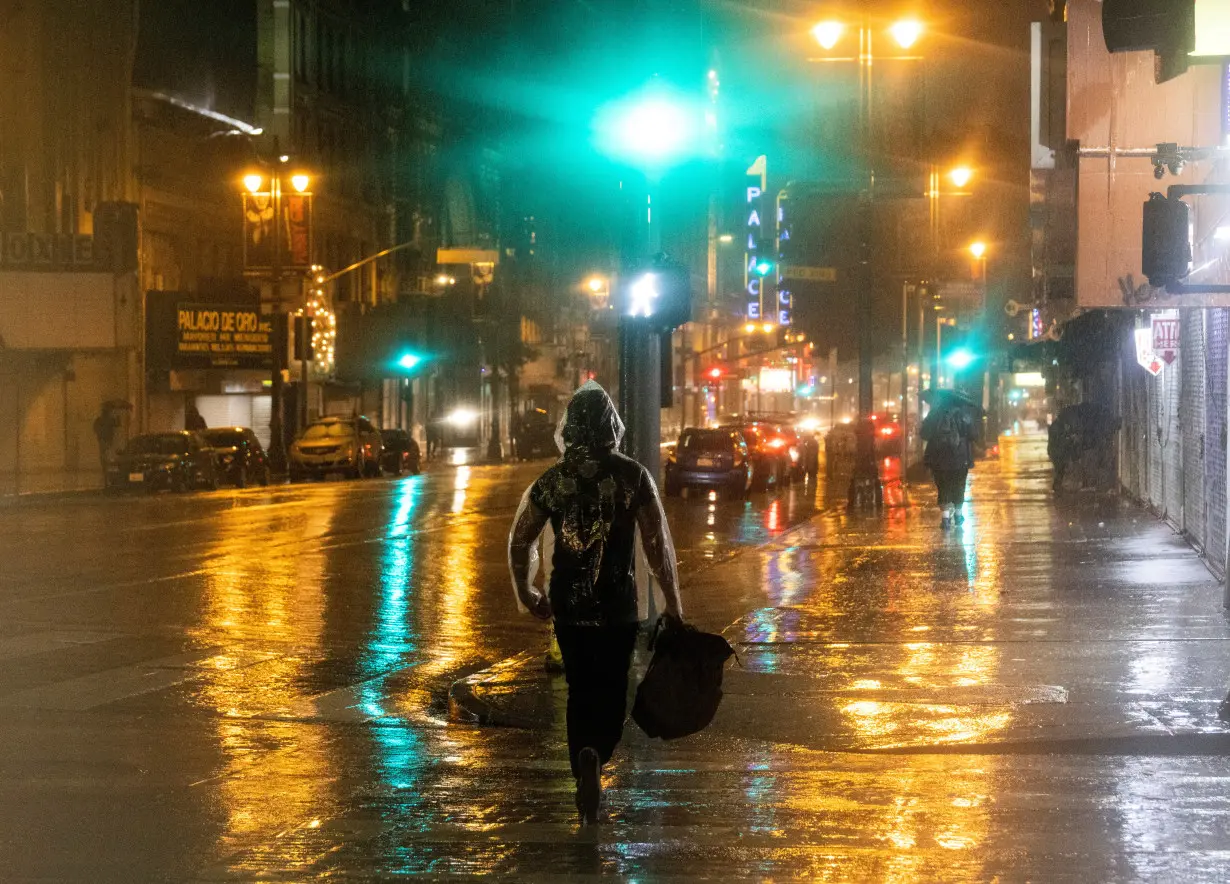
The NWS said additional rainfall will exacerbate saturated conditions and continue the threat of life-threatening catastrophic flash, urban and small-stream flooding.
In Santa Barbara, about 95 miles (153 km) up the Pacific coast from downtown Los Angeles, the normally placid Mission Creek running through the city was close to spilling over its banks after 3 to 6 inches (8 to 15 cm) of rainfall in Central California during the weekend.
A man was killed Sunday when a large redwood tree fell on him in Yuba City, about 40 miles (64 km) north of Sacramento, the local police department said. It did not attribute his death to the weather, but wind gusts were up to 58 miles (93 km) per hour around that time, according to local news reports.
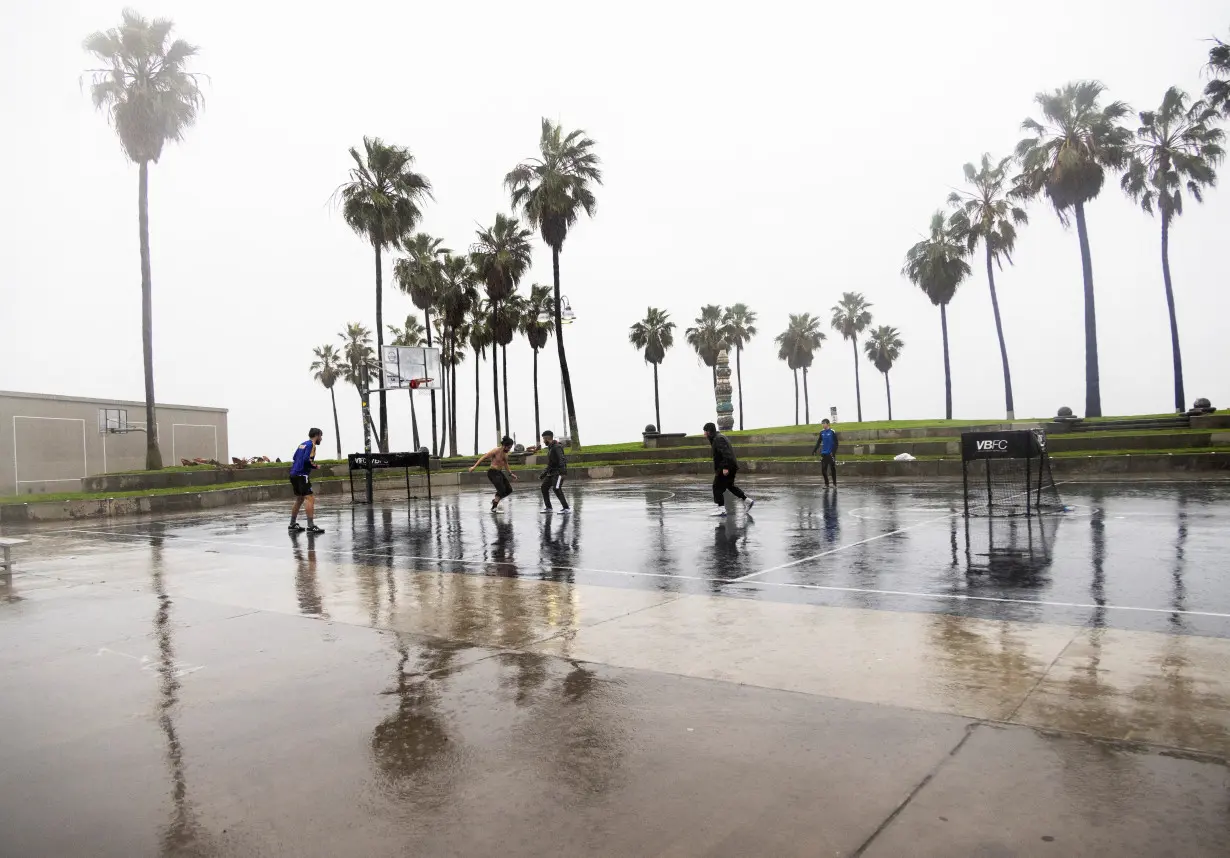
(Reporting by Brendan O'Brien in Chicago; Editing by Will Dunham)
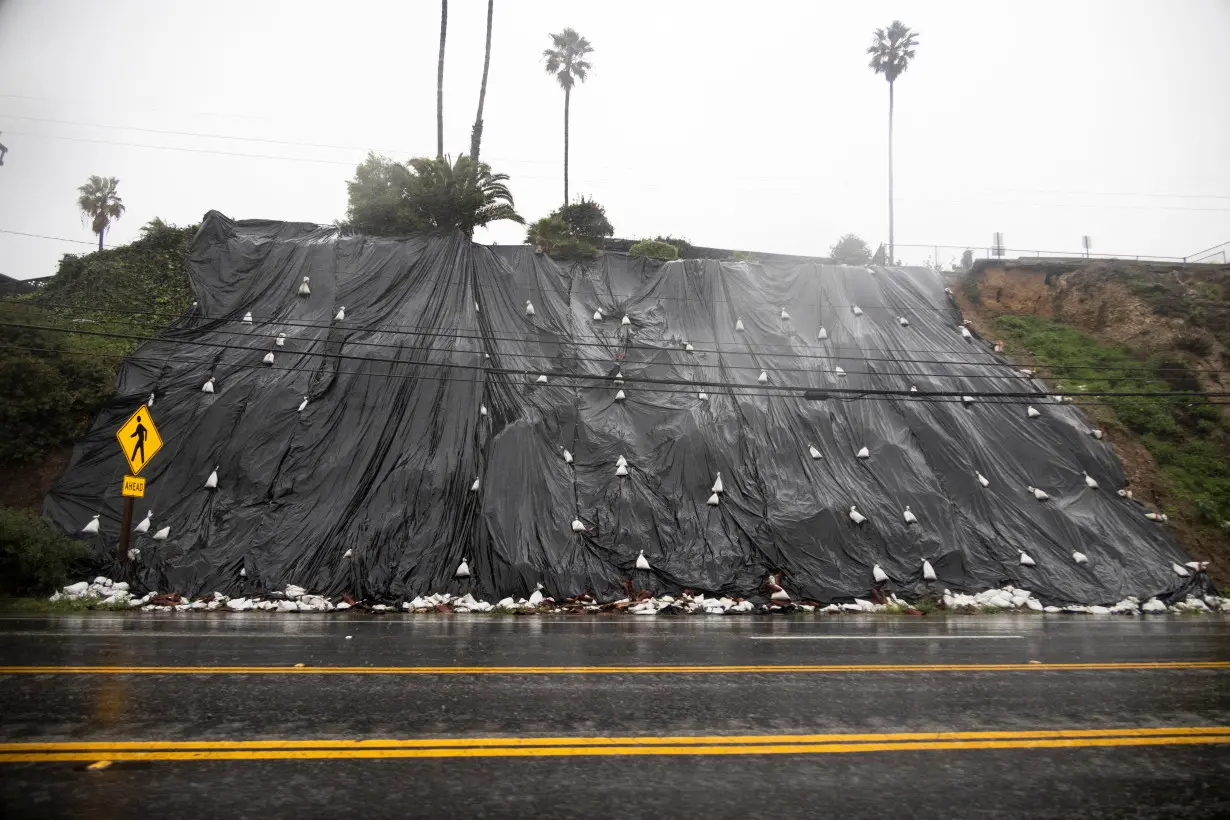

 United Airlines CEO calls pullback in domestic seats a durable trend
United Airlines CEO calls pullback in domestic seats a durable trend
 Discover Financial fourth-quarter profit jumps on lower loan loss provisions
Discover Financial fourth-quarter profit jumps on lower loan loss provisions
 Volkswagen says 6% margin target for brand realistic in medium term, analyst says
Volkswagen says 6% margin target for brand realistic in medium term, analyst says
 Bain matches CC Capital's offer for Australia's Insignia Financial at $1.92 billion
Bain matches CC Capital's offer for Australia's Insignia Financial at $1.92 billion
 White House summarizes Trump orders this week suspending entry at border
White House summarizes Trump orders this week suspending entry at border
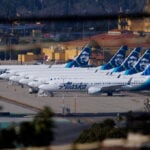 Alaska Air beats Q4 profit estimates, sees smaller Q1 loss on robust travel demand
Alaska Air beats Q4 profit estimates, sees smaller Q1 loss on robust travel demand
 Patrick Mahomes on whether NFL officials favor the Chiefs: 'The referees are doing their best'
Patrick Mahomes on whether NFL officials favor the Chiefs: 'The referees are doing their best'
